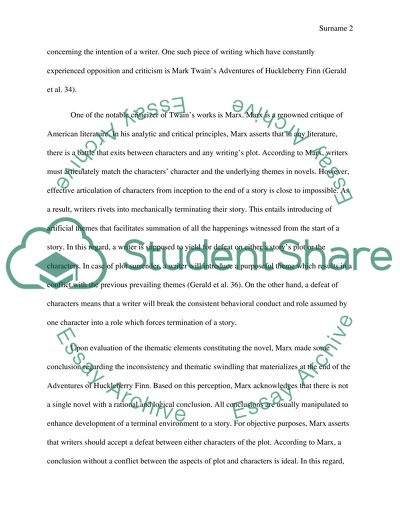Cite this document
(“Twain's Controversial Ending: Huckleberry Finn Essay”, n.d.)
Retrieved from https://studentshare.org/literature/1450895-twain-s-controversial-ending-huckleberry-finn
Retrieved from https://studentshare.org/literature/1450895-twain-s-controversial-ending-huckleberry-finn
(Twain'S Controversial Ending: Huckleberry Finn Essay)
https://studentshare.org/literature/1450895-twain-s-controversial-ending-huckleberry-finn.
https://studentshare.org/literature/1450895-twain-s-controversial-ending-huckleberry-finn.
“Twain'S Controversial Ending: Huckleberry Finn Essay”, n.d. https://studentshare.org/literature/1450895-twain-s-controversial-ending-huckleberry-finn.


